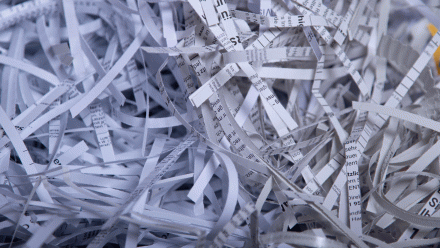Q: Our church recently received an unsolicited ad in the mail from a company warning us that we need to comply with a Federal Trade Commission “disposal rule.” What is the disposal rule, and does it apply to churches?
In an effort to protect the privacy of consumer information and reduce the risk of fraud and identity theft, the FTC adopted a “disposal rule” in 2005 requiring “consumer reports to be disposed of in such a manner that they cannot subsequently be reconstructed by identity thieves. The rule requires the proper disposal of information in consumer reports and records to protect against “unauthorized access to or use of the information.”
The definition of a “consumer report” includes credit checks, criminal records checks, and references that are used in making employment decisions. The bottom line is that these kinds of documents cannot simply be tossed into the trash. Instead, they must be shredded, burned, or pulverized, either by the employer itself or by an external vendor. Obviously, the vast majority of churches can comply with this rule by purchasing a $20 shredder at a local office supply store.
According to the FTC, the standard for the proper disposal of information derived from a consumer report is flexible, and allows the employer to determine what measures are reasonable based on the sensitivity of the information, the costs and benefits of different disposal methods, and changes in technology.
For more information about the disposal rule, visit the FTC website.

